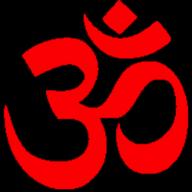✔ 最佳答案
To ask "What is man?" is to ask "What is experience?" for experience means that of which I am conscious. The facts of consciousness are the only facts that, to begin with, we are justified in asserting to exist. On the other hand, they are valid evidence for whatever is necessary to their own explanation, i.e. for whatever is logically involved in them. Now the most striking characteristic of humans, that in fact which marks them specially, as contrasted with other animals, is self-consciousness. The simplest mental act into which we can analyse the operations of the human mind—the act of sense-perception—is never merely a change, physical or psychical, but is the consciousness of a change.
Human experience consists, not of processes in an animal organism, but of these processes recognised as such. That which we perceive is from the outset an apprehended fact—that is to say, it cannot be analysed into isolated elements (so-called sensations) which, as such, are not constituents of consciousness at all, but exist from the first as a synthesis of relations in a consciousness which keeps distinct the "self" and the various elements of the "object," though holding all together in the unity of the act of perception. In other words, the whole mental structure we call knowledge consists, in its simplest equally with its most complex constituents, of the "work of the mind." Locke and Hume held that the work of the mind was eo ipso [by that very act] unreal because it was "made by" humans and not "given to" humans. It thus represented a subjective creation, not an objective fact. But this consequence follows only upon the assumption that the work of the mind is arbitrary, an assumption shown to be unjustified by the results of exact science, with the distinction, universally recognised, which such science draws between truth and falsehood, between the real and "mere ideas." This (obviously valid) distinction logically involves the consequence that the object, or content, of knowledge, viz., reality, is an intelligible ideal reality, a system of thought relations, a spiritual cosmos. How is the existence of this ideal whole to be accounted for? Only by the existence of some "principle which renders all relations possible and is itself determined by none of them"; an eternal self-consciousness which knows in whole what we know in part. To God the world is, to humans the world becomes. Human experience is God gradually made manifest.
compiled.

